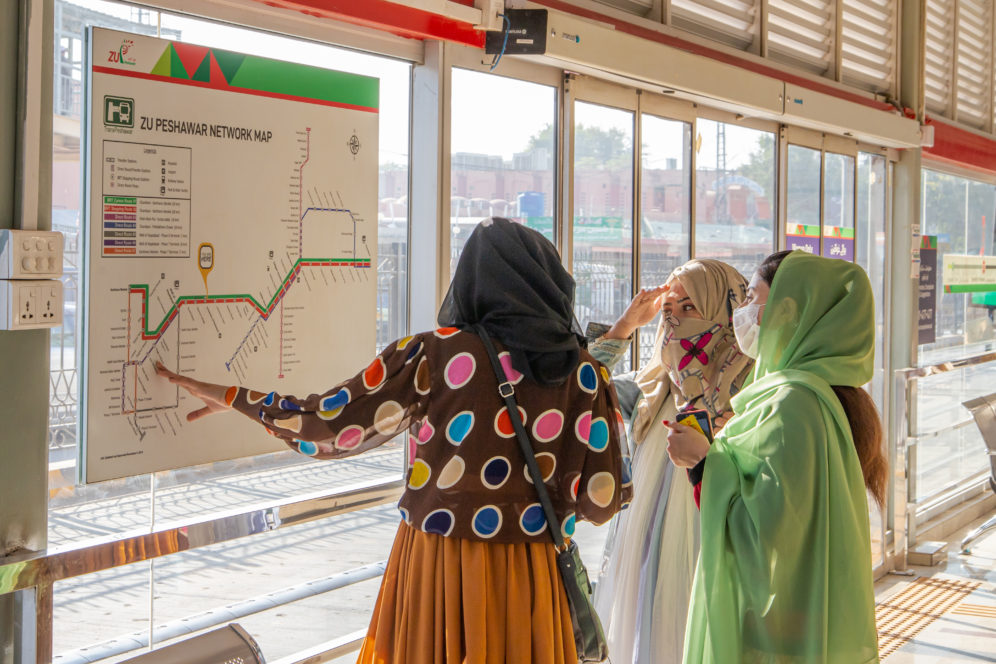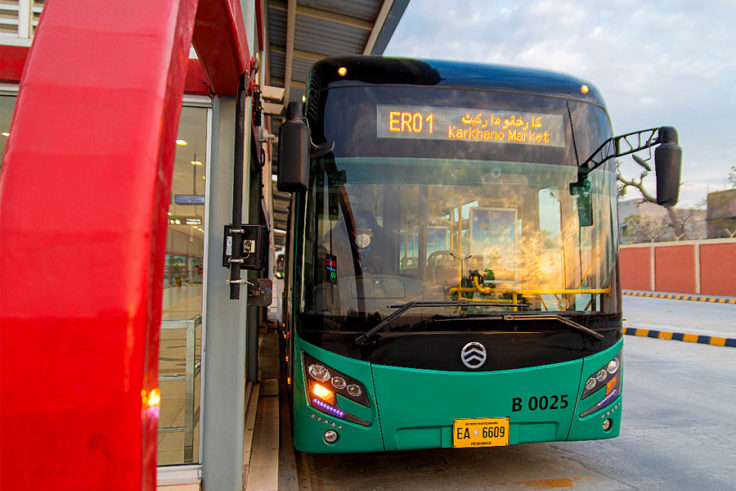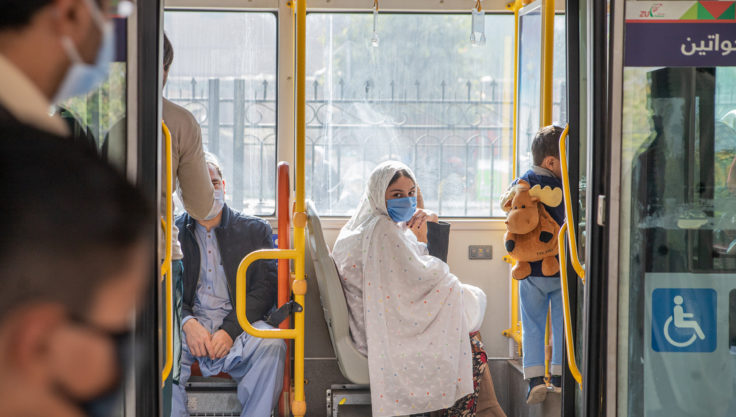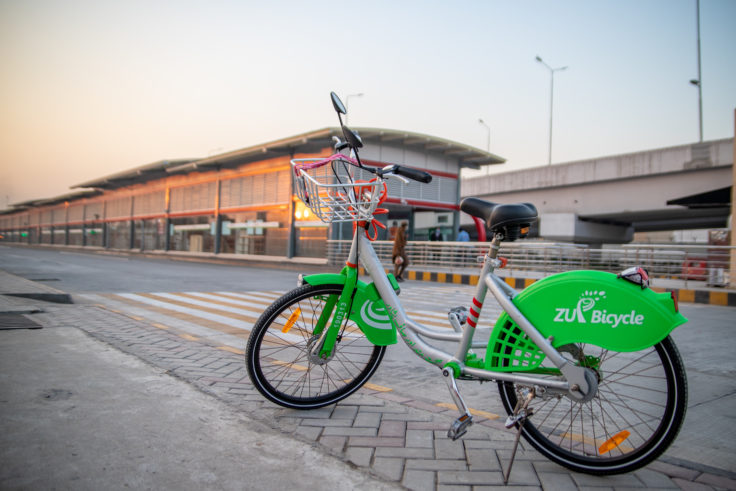
June 09, 2022
How Peshawar Approaches Sustainable, Accessible & Inclusive Transport
The city of Peshawar, Pakistan is the 2022 recipient of the Sustainable Transport Award’s Honorable Mention, and is a pioneer for transportation in its region.
“In our people-centric planning, we approached the most vulnerable groups for feedback and helped turn them from dependent to independent people.”
— Muhammad Imran Khan, General Manager, TransPeshawar
Peshawar is located in the capital of the Khyber Pakhtunkhwa province in Northwest Pakistan and has a population that has recently boomed to nearly 2 million residents, but with an estimated 40% living below the poverty line. In recent years, Peshawar has struggled with congested streets filled with private cars, pedestrians, and small informal public transit vehicles. These informal transport vehicles — such as small trucks and vans — often operate without permits and in hazardous conditions that compound congestion. In addition, public transport access was a significant challenge for low-income residents and women, many of whom travel on foot or lack the resources to travel by car or taxi. Much of the existing transit infrastructure also could not withstand the intensifying climate and rainfall changes that now regularly impact the region.
To address these challenges, the city made an outstanding commitment to improving the welfare of its residents through an innovative new bus rapid transit (BRT) system, Zu Peshawar. Since 2020, Zu Peshawar has created mobility conditions that stand in stark contrast to the city’s history of congested streets, air pollution, and chaotic informal public transport modes. It delivered the region’s first gold standard BRT, built the first bicycle-sharing system and dedicated bicycle lanes in the country, developed a system to respond to extreme heat and rain, and grounded these in an inclusive approach throughout the planning process. There have been landmark improvements to walking, cycling, and overall access to the city, alongside key investments into infrastructure upgrades that better prepare the city for a changing climate and more extreme weather events. Now utilized by hundreds of thousands of riders a day, Zu Peshawar stands as a model for sustainable and inclusive mobility planning.

A key consideration in Zu Peshawar’s planning was ensuring that the design process was influenced by — and addressed the needs of — those residents who rely most on the system, with a specific focus on women, children, transgender people, and persons with disabilities. Project administrators undertook several methods of citizen engagement in the planning, implementation and operations phases, including surveys, workshops, consultations, public meetings and various forms of digital feedback. In addition, thanks to the fully hybrid bus fleet which aims to take private and outdated vehicles off of the road, the city estimates that the system reduced Peshawar’s greenhouse gas emissions by 31,000 tons in the first year of operation. As of 2022, the system has over 240 hybrid buses in its fleet with amenities like air conditioning, CCTV, dedicated seats for the disabled, and women-only entrances.

Development around the BRT lines also included infrastructure improvements for non-motorized transport, such as bike lanes and footpaths that encourage more cycling and walking. By rethinking the city’s wholesale mobility options under the Zu Peshawar strategy, Peshawar is also reimagining its walking and bicycling networks. The BRT main corridor has been built with dedicated bicycle lanes running alongside them, providing a safe infrastructure for bicycle usage. Every BRT station also includes bicycle parking for people who reach the station using their own cycles. Coinciding with this new vision for transit, the city is also now home to the country’s first bikeshare system, which has over 30 stations serving riders across the city.

Zu Peshawar is now a milestone BRT and transit strategy on the Indian Peninsula and has been moving over 250,000 passengers daily, providing critical access to the city for everyone — especially women, persons with disabilities, low-income residents, and youth. The system’s resilient and inclusive design, centered on the needs of people who will use it most, is the highlight of achievements which earned Peshawar the 2022 STA Honorable Mention alongside Tartu, Estonia, which was recognized for its data-driven approach to sustainable transport (learn more here).
To spotlight the significant progress that has been made in Peshawar, ITDP developed a case study and webinar, in collaboration with TUMI and TransPeshawar, that discusses the efforts of inclusive transport planning guided by strong leadership and policies, resulting in the city’s shift towards innovative, sustainable mobility.
Read the full Peshawar, Pakistan Case Study >>
View the “Peshawar: Road to the Region’s First Gold Standard BRT” Webinar >>
